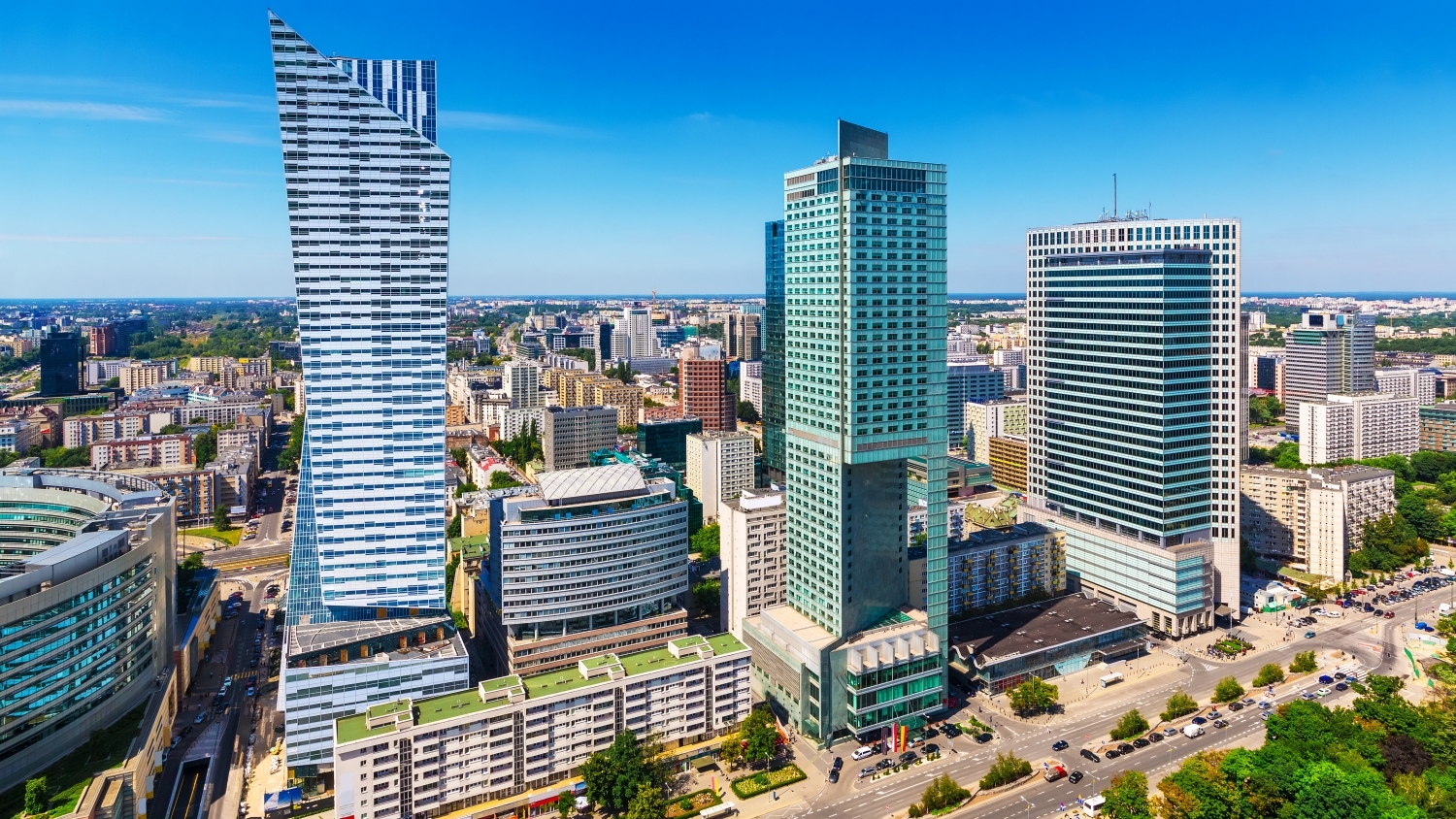
After the excellent results recorded in 2017, Warsaw's office market continued performing well in Q1 2018. Vacancy rates are decreasing while demand stands at 202,000 sqm. 770,000 sqm of office space is under construction. There is also a growing demand for flexible space, and state-of-the-art technological solutions. JLL summarised the situation on the Warsaw office market at the end of Q1 2018.
“Warsaw is cementing its place as the centre for business activity in the CEE region. This, in turn, is a powerful lure for both investors and occupiers and has resulted in bullish forecasts for the next few quarters. Established companies are continuing to expand their footprint in the capital and will carry on fuelling demand for office space. This, coupled with a wide range of newcomers to the market, further enhances growth forecasts and boosts tenant activity in Warsaw. Occupier activity totalled 202,100 sqm in Q1 2018”, explains Anna Młyniec, Head of Office Agency and Tenant Representation at JLL.
The Central Business District (CBD) leads the way in terms of total demand followed by Mokotów. Together they account for 75% of the total demand for offices in the capital. The most notable deals concluded in Q1 2018 included a new deal signed by a confidential company from the public sector for 14,800 sqm in Piękna 2.0, a pre-let by CIC for 13,500 sqm in Varso II, and a new deal by AdPilot for 10,300 sqm in Wolf Marszałkowska.
The growing maturity of the capital office market is accompanied by the evolving needs and interests of tenants. Currently, two major trends are attracting the attention of both landlords and occupiers: the increasing role of property technology and the rise of the flexible working environment
“We recognize a growing demand for technological solutions dedicated to office buildings. These include integrating virtual or augmented reality services, which helps to draw in new tenants. An interesting solution is the concept of heat mapping employee movements, which allows for optimizing floor space and adapting to a changing workforce. Innovations are also key to the increasing importance of flexible working environments. This is underlined by the recent decision of Cambridge Innovation Center (CIC) to start operations in Warsaw and to focus on start-ups, corporate innovation initiatives and building a ‘Warsaw-based innovation community’. New technologies have changed the face of the office market and we can be sure that technology will continue to help shape the offices of the future in the next few years”, comments Tomasz Trzósło, Managing Director at JLL.
The amount of new supply coming to the market in Q1 2018 was rather moderate: two buildings were completed - Graffit and Europejski - which provided the Warsaw office market with 23,700 sqm of office space. This is in line with the expected contraction of the pipeline in 2018 and the correction between supply and demand.
“The under-construction volume currently totals 770,000 sqm, most of which is due for completion in 2020. However, one should note that a strong pipeline doesn’t necessarily translate into oversupply. On the contrary, Warsaw proves, year after year, that its booming demand and absorption of new space is more than enough to balance the supply side of the market. This is also confirmed by the decreasing vacancy rate - currently at 10.8%. The rate is forecast to continue decreasing until at least the end of 2019”, comments Łukasz Dziedzic, Research Analyst at JLL.
The lower completions volume and the robust demand during the first quarter resulted in a drop in the vacancy rate in Warsaw to 10.8%. This decrease is most evident in central Warsaw, where 7.3% of space is empty (1.8 pp drop q-o-q). The vacancy rate in non-central Warsaw remained stable at 13.1% at the end of Q1.
Prime headline rents remained stable in Q1 2018. In central Warsaw, rents are currently quoted at €17 to €23 / sqm / month, while prime assets located in the best non-central areas lease for €11 to €15 / sqm / month. JLL does not envisage major changes in the rates on the Warsaw lease market any time soon. However, Warsaw has reached the bottom of the rental cycle and some rental pressures may grow along with an increase in labour and constructions costs.



